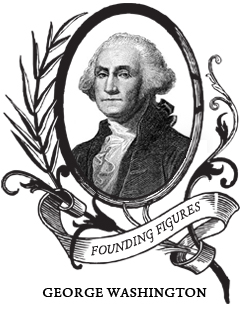In some circles Washington is remembered not as a victorious military general or as an exemplary president, but as an agricultural pioneer. He owned vast tracts of land in various parts of the colonies, but it was the more than seven thousand acres along the Potomac, acquired through inheritance and purchase, that he devoted to farming. The land immediately surrounding his house at Mt. Vernon was run as a country estate, and the rest was divided among four farms for better management. Long before he became involved with the revolution, Washington was concerned with finding better ways of farming. His followed the scientific practices of the English, experimenting with new machines and ordering plows specifically designed for colonial soil. While the rules of the new Society required residency within ten miles of Philadelphia, he was invited to accept honory membership. We know that during the summer of 1787, while he was in Philadelphia for the Constitutional Convention, he attended at least one Society meeting. He was good friends with several of the charter members of the Society-Samuel Powel, Richard Peters, Benjamin Rush. He corresponded with many, asking advice on practical farming matters. In 1786 he began a correspondence with Arthur Young, an English expert on scientific farming practices. To him he confessed, “The more I am acquainted with agricultural affairs, the better I am pleased with them; insomuch, that I can no where find so great satisfaction as in those innocent and useful pursuits.” In 1791, Young sent Washington six volumes of his Annals of Agriculture to be delivered to the Society.
George Washington

